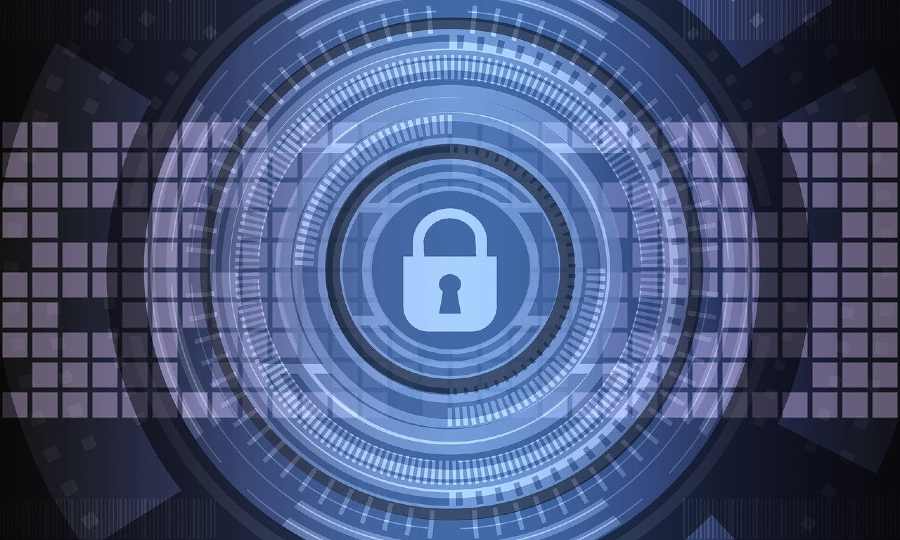The Essential Guide to Computer Viruses
Every computer user needs to be aware of viruses and the risks they pose. Once a machine has been infected with a virus, it can do all sorts of damage, from deleting and changing files to letting hackers have access to your machine and sharing your personal details, including contact and bank information, with other users.
This guide will take a full, comprehensive look at viruses, including what they are, how they work, and what you can do to stop them.
What is a Computer Virus?
A computer virus, as the name implies, works a lot like a virus in the physical world. In the same way that a flu virus infects one person and then passes to others, a computer virus is designed to move between computers and networks, multiplying again and again.
And just like a flu virus or other kind of infectious virus, a computer virus can do a lot of damage once it infects a machine. In technical terms, it’s little more than a program or piece of computer code and can seem so simple and small on the outside, but once it attaches itself to your files and system, it can have all kinds of terrible effects.
How Do Computer Viruses Work?
The ultimate aim of any computer virus is to infect a machine. Once the virus gets into your system, which can occur in various ways, such as through downloads on untrustworthy sites or by clicking seemingly innocent links in your email inbox, it will attach itself to a program, file, or document, hidden away and almost invisible to the user.
On some occasions, the virus will remain dormant on your computer until its code is activated. In fact, certain actions that are unknown to the user will trigger the code and thus release the virus on your device. Once that happens, you are vulnerable to all sorts of cyber-attacks that could render your computer unusable.
Further, some viruses are able to attack any computer on the same network. So if you accidentally download a virus on your computer while at home, every computer connected to your internet network could potentially become infected.
When you open up the infected file or program, you’ll inadvertently launch the virus too, allowing it to infect your computer fully and put the effects of its code into action. These effects can vary wildly.
Some viruses are relatively harmless, designed more for the amusement of the creator than to cause any real damage, but others can have disastrous consequences, from corrupting your files to stealing your passwords or even taking over your computer entirely.
Some of the common targets of computer viruses include:
- Stealing your passwords.
- Peaking at your data.
- Logging your keystrokes.
- Corrupting your files.
- Spamming your email contacts.
- Spamming your social media.
- Breaking your computer.
How Are Computer Viruses Spread?
While on the internet, you must be incredibly careful if you want to avoid a computer virus. In some cases, a virus can be spread by simply visiting an unsecured website. But most of the time, viruses are spread when you open an infected link, which could be any of the following:
- Email attachments
- Text message attachments
- Downloads from the internet
- Social media scam links
- App downloads
- Online greeting cards
- Funny images (sharable)
- Audio files
- Video files
Should you download an infected file or click on an infected link, the virus will be unleashed onto your device. Once this happens, the virus may send messages on your behalf in an attempt to get others to download the virus as well.
But, technology is getting better and smarter, shouldn’t computer viruses be a thing of the past?
While many of us do our best to avoid contracting a computer virus, the viruses have become more advanced and sneakier. So, it makes it even harder to discern a computer virus from a normal downloadable link.
Types of Computer Viruses
There are many different types of computer viruses, and when we talk about viruses, we also often have to think about malware too, which can take a range of additional forms. All of these different programs and pieces of code are designed to infect devices and have unwanted effects. Here are some common types of viruses to look out for:
- Worms – unlike most viruses, worms can spread on their own and do damage without being operated by an individual.
- Trojans – like the famous Trojan horses, trojan viruses will hide in seemingly normal computer applications and be released when you least expect it. These viruses will spread across entire networks.
- Ransomware – this type of virus will encrypt your files and will offer to release them for a ransom or payment. While not commonly spread through computer viruses, I can be.
- Resident – A resident virus infects your system’s memory and can modify or affect various operations and functions throughout your system.
- Multipartite – This kind of virus spreads out and infects the entire system, performing various actions beyond the user’s control.
- Direct Action – This form of the virus is targeted, aimed at having a specific effect on a specific type of file.
- Browser Hijacker – This kind of virus can infect your web browser and automatically take you to sites you didn’t ask to visit.
- File Injector–This one can target executable files, and when launched, it slows down your system and may even make it almost unusable.
- Network – A network virus can pass beyond your computer into other devices connected to the same network.
- Boot sector virus – When you start (aka, “boot” up) your computer, this virus will be unleashed. This virus can be spread if you plug in an infected USB drive.
- Web scripting virus –this virus exists on web pages and will be released once you enter a website that has infected a website’s code.
- Polymorphic virus – to go undetected, a polymorphic virus will change its code every time it is released.
- Macro virus – this virus is often spread through email attachments its code is similar to that of a software application, so it can be sneaky.
While these are the most current types of computer viruses detected by leading brands, new computer viruses are being engineered all the time. So when you purchase a virus protection software, it’s crucial that you find one that will adapt just as much as the virus does.
What is the Difference Between Viruses and Malware?
Even though computer viruses and malware are often used interchangeable, they are technically different. While malware is a term for any kind of malicious software, a computer virus is a type of malware that has the capability to self-replicate its code, like a real human virus.
In fact, a virus has a specific goal in mind: to spread and encrypt files, delete files, modify your application, or disable your system’s functions. Malware, on the other hand, may have a different goal in mind, such as:
- Tricking someone to provide personal data to steal their identity.
- Steal credit card or other financial data.
- Take control of all computers on a network.
- And more recently, infect computers to mine cryptocurrencies, such as bitcoin.
What is the Most Common Virus on Computers?
While there are many types of computer viruses out there, the most common type of malware is actually a worm. Worms have the ability to spread across an entire network of computers and exploit their operating systems. Additionally, worms have a self-replicating ability to continuously replicate their data and infect more computers without having to be activated by an individual.
Signs Your Device May Be Infected
Even though some computer viruses can remain dormant for an extended period of time, there are some general, easy-to-spot signs that a computer has been infected by a computer virus.
If you’re worried about possible infections on your machine, here are some of the key signs that viruses may be present:
- Slow Performance – Many viruses will slow down your computer, making simple tasks take a lot longer and potentially causing your computer’s fans to make loud noises.
- Crashes – If your computer keeps crashing and shutting down without any obvious reasons, viruses may be to blame.
- Pop-Ups – Many viruses will cause pop-up windows to appear all over your screen, encouraging you to visit sites or download files. This is one of the most common signifiers that a computer virus has taken over.
- Browser Changes – You may have a virus if your browser is suddenly taking you to a different homepage or using a different search function.
- Mass emails sent from your email address – oftentimes, a computer virus will gain access to your email account and sent out a mass email to all or most of your contacts. Sometimes you can detect when this happens, but other times your contacts may notify you that they got a suspicious email from your account.
- Unknown programs – if you notice that unknown programs have appeared on your computer when you start it up, that is a good indicator that a computer virus is present.
- Password changes or unusual account activity – if you get email notifications that your password was changed and you did not knowingly change your password, you may have been hacked.
How to Protect Your Computer from Computer Viruses
While the best way to protect your computer is to install anti-virus protection from a leading brand such as Total AV or Avira, there are some other ways that you can protect your devices from damaging computer viruses. For example, you could:
- Try a free version of anti-virus software before committing to a paid version. You will at least be able to try out the benefits even if a free trial may expire or you may not have access to premium benefits.
- Stay away from pop-up advertisements no matter how tempting it may be to click on them.
- Always scan any email attachments before you open them.
- Always check who sent an email before you open the attachments. If you don’t know the sender, delete the email and notify the email provider immediately.
- If you use a file-sharing program, always check over the files before you open them.
- If you get a message from someone on social media that either you don’t know or rarely communicate with, check the content of the message before opening any links.
Get the Ultimate Protection Against Computer Viruses
Viruses can do a lot of damage, not just to your computers and other devices, but to your entire life. In the worst-case scenario, they can help hackers and cybercriminals get their hands on your personal details, files, and even your payment information, able to use your credit cards or effectively steal your identity. That’s why it’s so important to take action now.
By purchases computer virus protection, you can feel confident when surfing the web and downloading files. Anti-virus software will protect you from the most malicious viruses on the internet, so you should absolutely consider using one of the top brands for your protection.
The best antivirus software can keep you safe from viruses, eliminating threats and preventing them from infecting your machine. Not that you know what a computer virus is and how to tell if your computer is infected, you should check out our expert guides on the best anti-virus protection in the industry.

